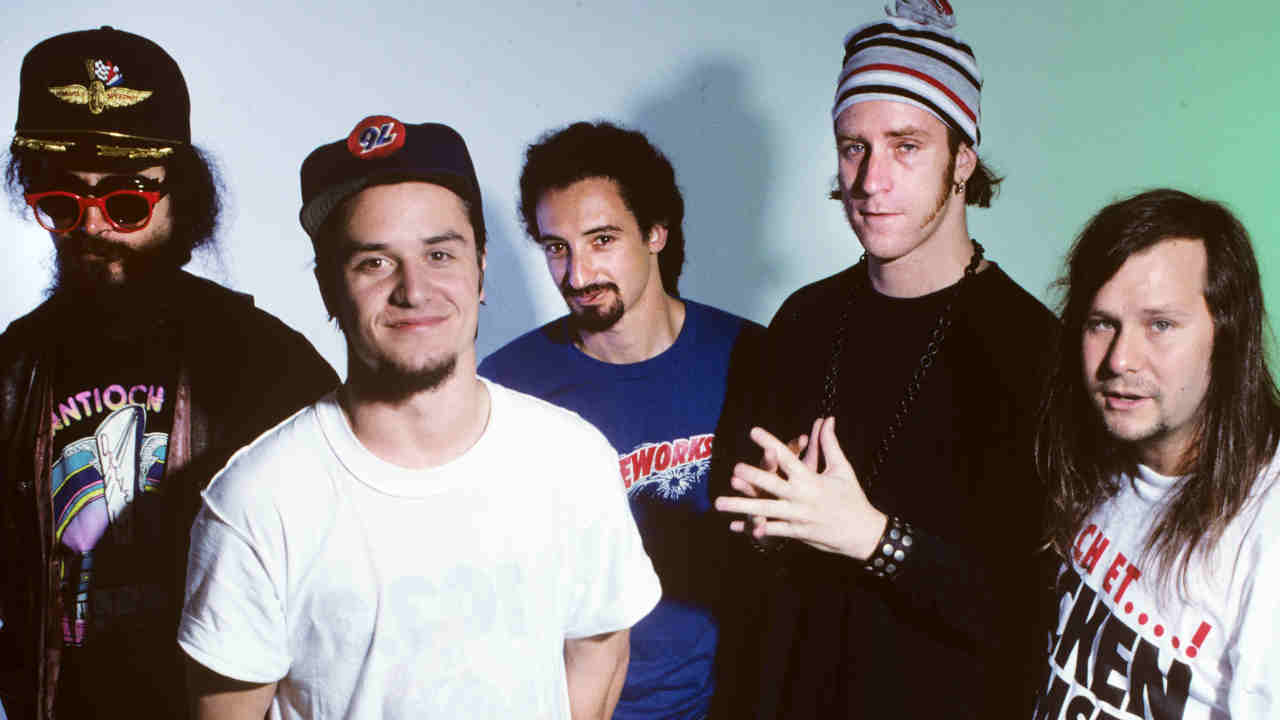Lost in a jam: Gov't Mule
Blending blues, soul, gospel, jazz, country and rock’n’roll into tasty jams comes naturally to Mule mainman Warren Haynes, as he explains to Classic Rock
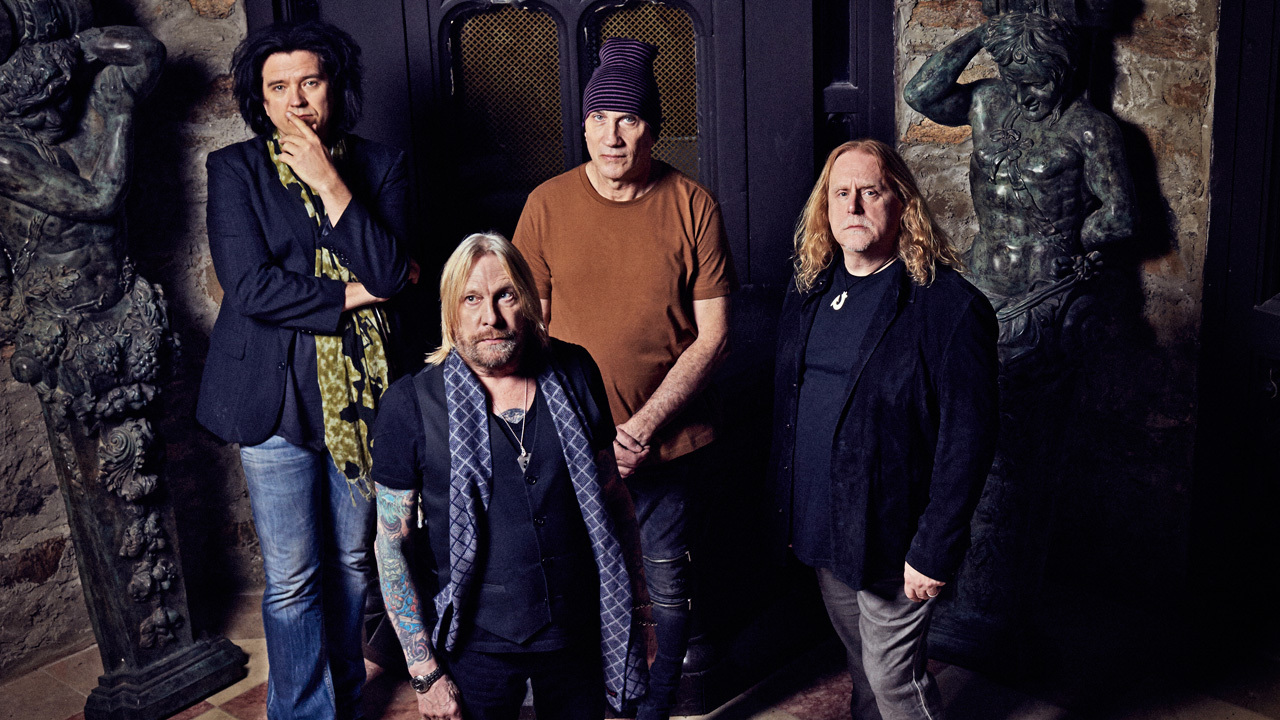
There’s no one better qualified to talk about jam bands than Warren Haynes. Not only has he served as Gov’t Mule’s frontman and guitarist for the past 23 years, he’s also been a member of the Allman Brothers Band for the best part of a decade, and figured in line-ups of The Dead, the post-Jerry Garcia band formed by surviving players from the Grateful Dead. Factor in guest spots on albums by Dave Matthews, Derek Trucks and Blues Traveler and you have the very definition of someone who likes to find gold in musical spontaneity.
“It’s all about momentary composition,” says Haynes, attempting to explain the timeless appeal of jamming. “For a solo instrumentalist, it’s probably the most gratification you can get. Composing can often be very time-consuming, but when you’re improvising, it’s all on the fly – there’s no second chance. At the same time, there needs to be a balance between actual songwriting and improvisation. One without the other falls a little short.”
Gov’t Mule have just released Revolution Come… Revolution Go, an album that plays loud and loose with southern rock, heavy blues, countrified soul and free jazz. “It was the first studio record we’ve done since we took a break [after 2013’s Shout!] and since we celebrated our twentieth anniversary,” Haynes explains. “So I think a lot of the passion from our end comes from embarking on a new chapter. We never thought we’d make a second record, much less a tenth, which is what this one is.”
As the title implies, it’s also Gov’t Mule’s most politically pointed album to date. Sessions began last November in Austin, Texas on the same day that the American public cast their votes in the presidential election. That charged atmosphere found its way into the title track, the seething Stone Cold Rage and Pressure Under Fire. The latter is a strident call for unity in divisive times. ‘We all know how this ends,’ Haynes belts out. ‘So many times, so many places, by now you’d think we’d have learned, from any one of those times, that it blew up in our faces/How many times can we be burned?’
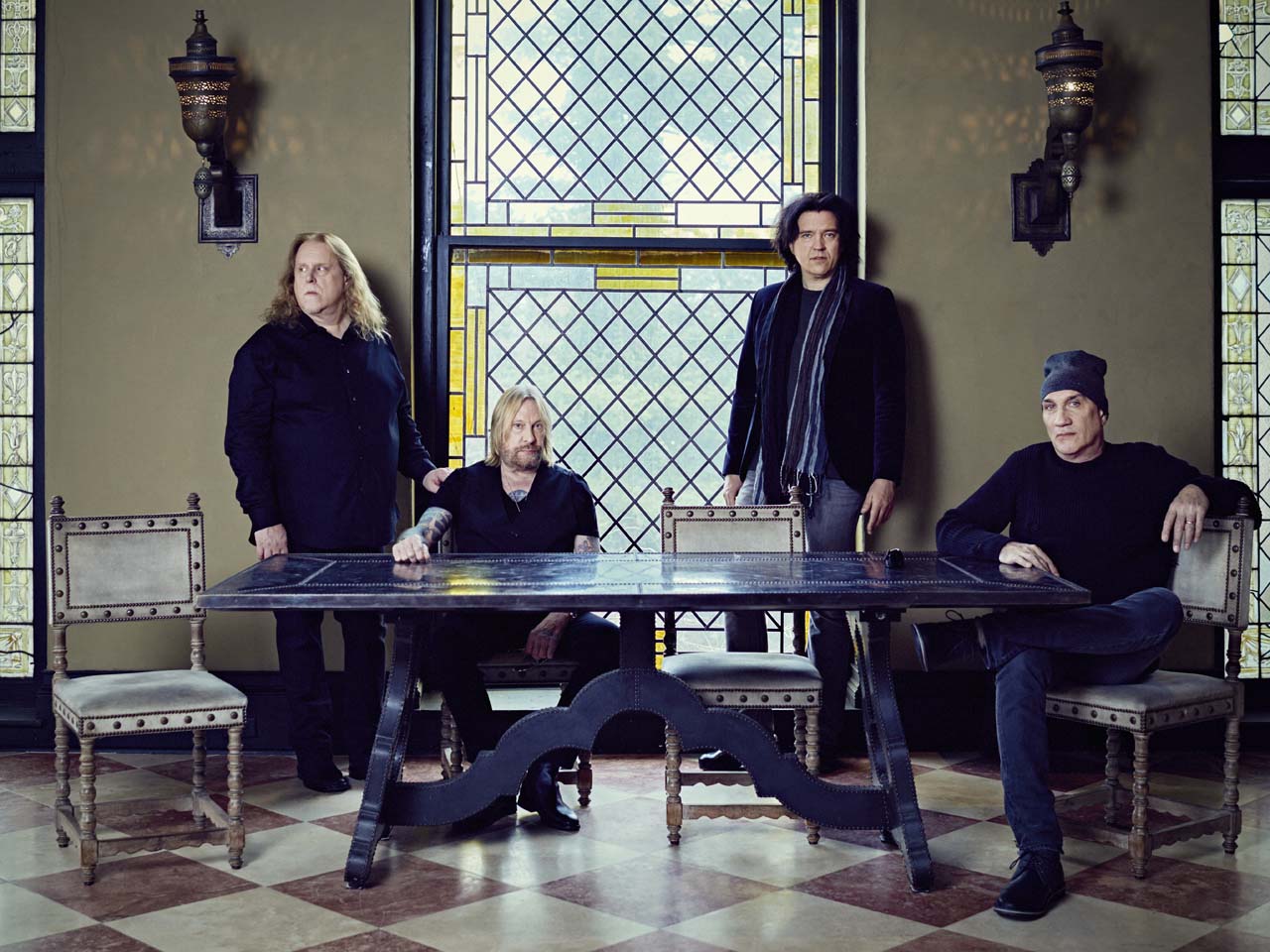
“Going back to our first record, there have always been political statements on pretty much every Gov’t Mule album,” he says. “Though there’s perhaps a little more on this one. Or maybe people are just more aware and paying attention now because of the volatile times we live in.”
To classify Revolution Come… Revolution Go as a purely political album, however, would be wrong. For all the biting polemic, it’s ultimately about the vicissitudes of a life well lived, with all its attendant triumphs, regrets and reflection. Its many moods are mirrored by the journeying nature of the music therein, allowing plenty of space for spontaneous manoeuvre.
Haynes’s long‑time co-producer Gordie Johnson had a hand in half of the album’s 12 tracks, as well as adding a little steel guitar. Meanwhile, the revered Don Was oversaw Dreams & Songs and the aforementioned Pressure Under Fire. Other guests include ex-Fabulous Thunderbirds guitar great Jimmie Vaughan, elder brother of the late Stevie Ray.
Sign up below to get the latest from Classic Rock, plus exclusive special offers, direct to your inbox!
“The three centrepieces for me are Thorns Of Life, Revolution Come, Revolution Go and Dark Was The Night, Cold Was The Ground,” Haynes says. “Those songs utilise more improvisation than the others. But even some of the more structured ones, like Stone Cold Rage or Drawn That Way, are very much improvised. We don’t really prefer to structure things out as far as the instrumental sections of the solos – we usually choose a performance based on the conversational aspect of it. If the band is hitting on all cylinders and everybody’s having a real musical conversation, that’s more rewarding to me.
“I think we all recognise the strong chemistry that we have musically, and how unique and special that is. And our tastes are similar enough to keep a common thread rolling through the music, but different enough to where there’s always some influences popping up from one direction or another that maybe we haven’t tackled in the past.”
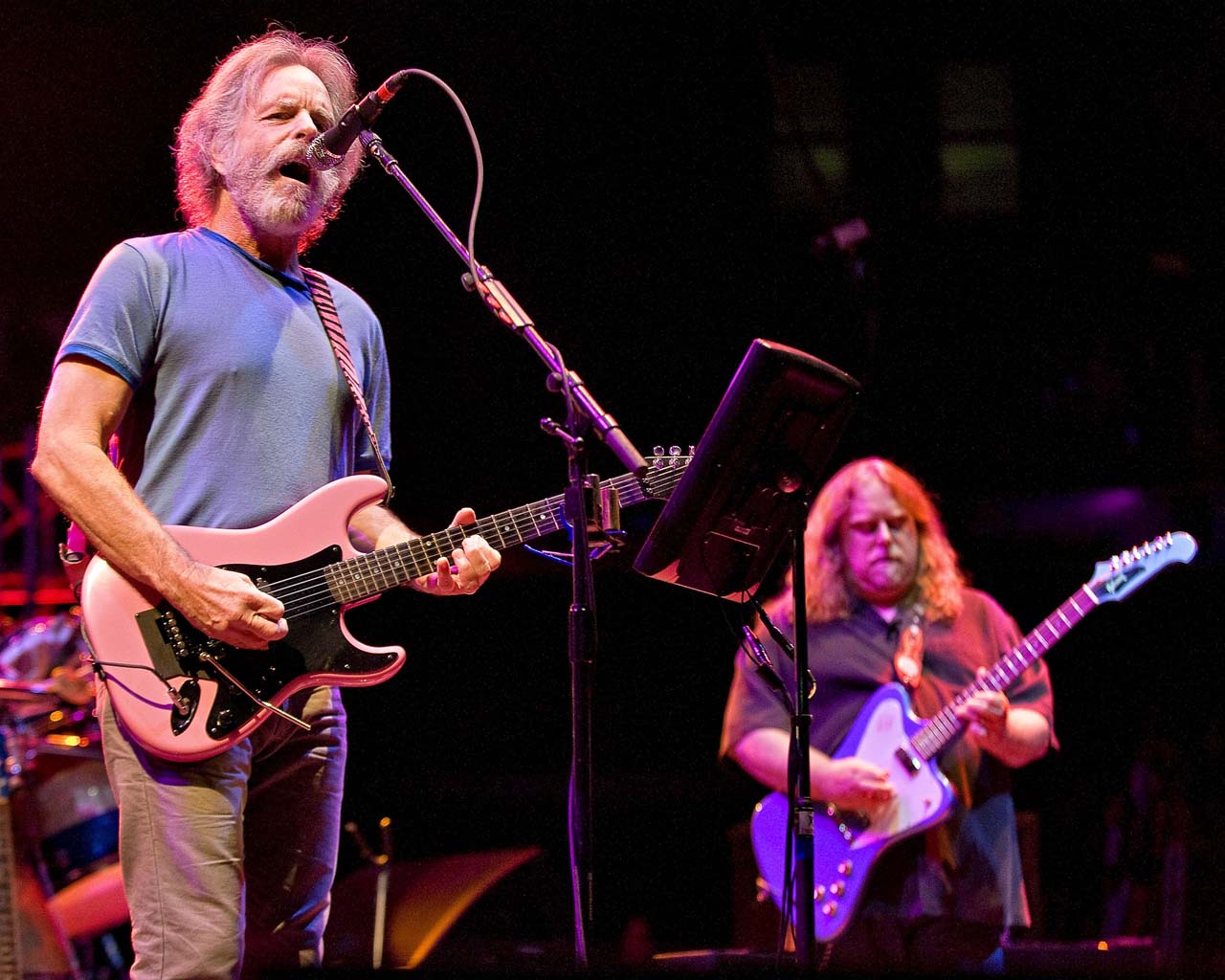
This aspect of Gov’t Mule is perhaps best heard on their treatment of Dark Was The Night, Cold Was The Ground. First recorded in 1927 by slide-blues legend Blind Willie Johnson, it has been covered many times since. But Haynes has added his own lyrics and transformed it into a hard-rocking, gospel-fired epic.
“The idea behind tackling that song is an extension of the thought process for John The Revelator, from our second album [1998’s Dose],” he explains. “For that one we took the Son House a cappella version that I was inspired by and added instrumentation to it. Then you can fast‑forward to By A Thread [2009], when we did Railroad Boy, the 100-year-old folk tune, and turned it into a rock song.
“The treatment of Dark Was The Night was kind of staying in tradition with that. I took a lot of the riffs and melodies that Blind Willie Johnson played on the original version, which is an instrumental. There are no chord changes or structure – it’s really just a feeling and a mood that’s so haunting and beautiful. So I decided I’d only want to do it if we could take it in a different direction. And it kind of grew from the ground floor upwards in the studio.”
Elsewhere, Haynes’s lifelong passion for soul music burns through the grooves of The Man I Want To Be and Sarah, Surrender, which has congas, organ riffs and female backing harmonies. “James Brown was my first love and Otis Redding was probably my favourite singer,” Haynes says. “I started singing before I ever played guitar. All the music I grew up listening to, before I discovered rock’n’roll, was soul: Otis, Wilson Pickett, Sam & Dave, James Brown.
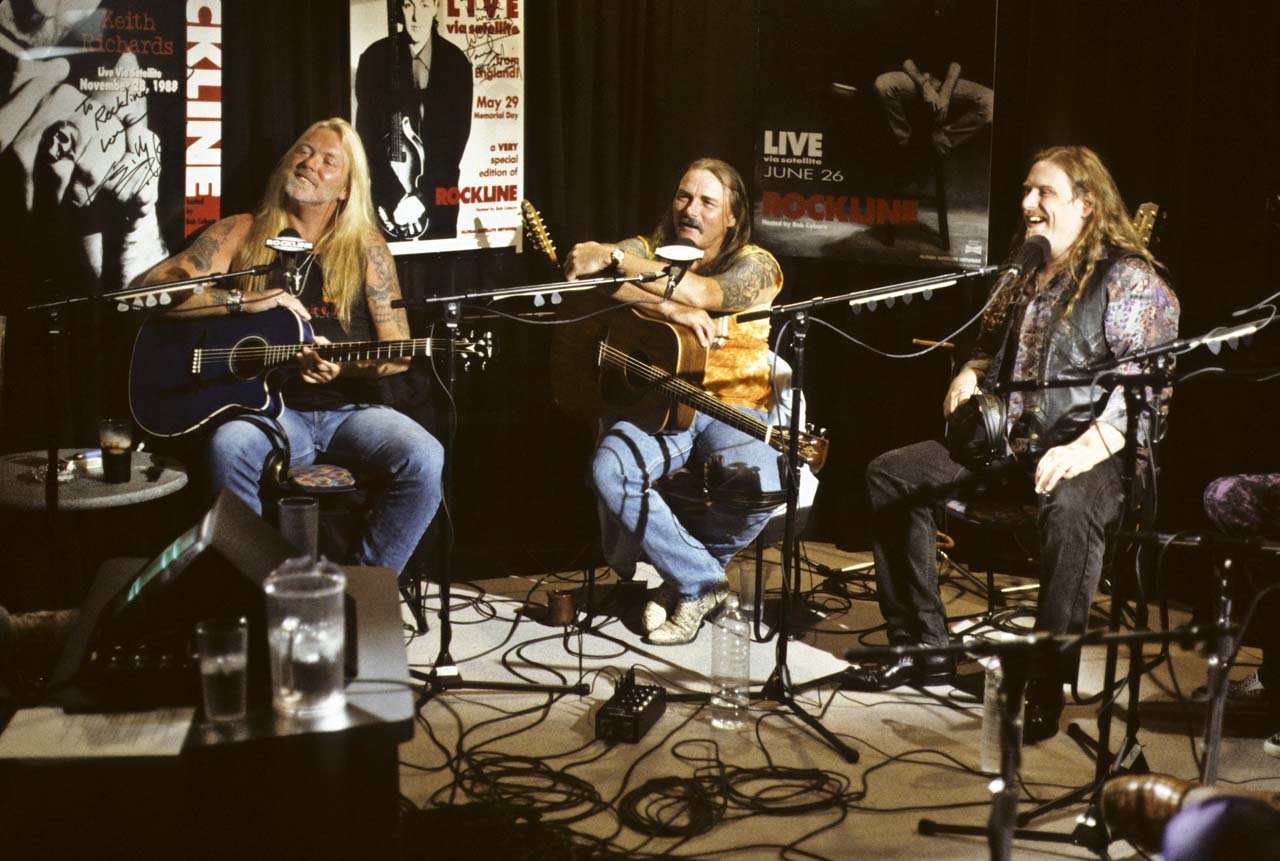
“Eventually I heard Sly And The Family Stone, and that started building a bridge to rock’n’roll music for me. Then I discovered Cream, Jimi Hendrix and Johnny Winter. That’s what made me want to play guitar.
“When I found out what all those guys listened to, it turned out to be Albert King, Son House, Freddie King, BB King, Elmore James and Howlin’ Wolf. I learnt so much from listening to those blues guys. The only guitar teacher I ever had was a blues guitarist, who told me that if I only ever listened to Albert King and BB King, I’d be studying for the rest of my life. When I finally got my first guitar, in 1972, I’d spend hours listening to those records, trying to figure out what they were playing.”
Haynes credits his siblings for encouraging his catholic tastes in music and, by extension, shaping his creative life.
“I was fortunate enough to grow up in a house with two older brothers who had all these amazing records,” he recalls. “They would force-feed me this great music and I was exposed to so much different stuff. It just seemed completely natural to like it all. My eldest brother was really into John Coltrane, Miles Davis and Sonny Rollins. It felt like somewhere between the blues and those jazz records was the source of inspiration for rock’n’roll bands who would play long solos. I think it’s all connected. The Allman Brothers, who I loved, were listening to Coltrane, but also Elmore James. I grew up in a time when all the bands were making live records and doing longer interpretations of their own songs. Me and my friends would sit in someone’s garage and jam for hours and hours.”
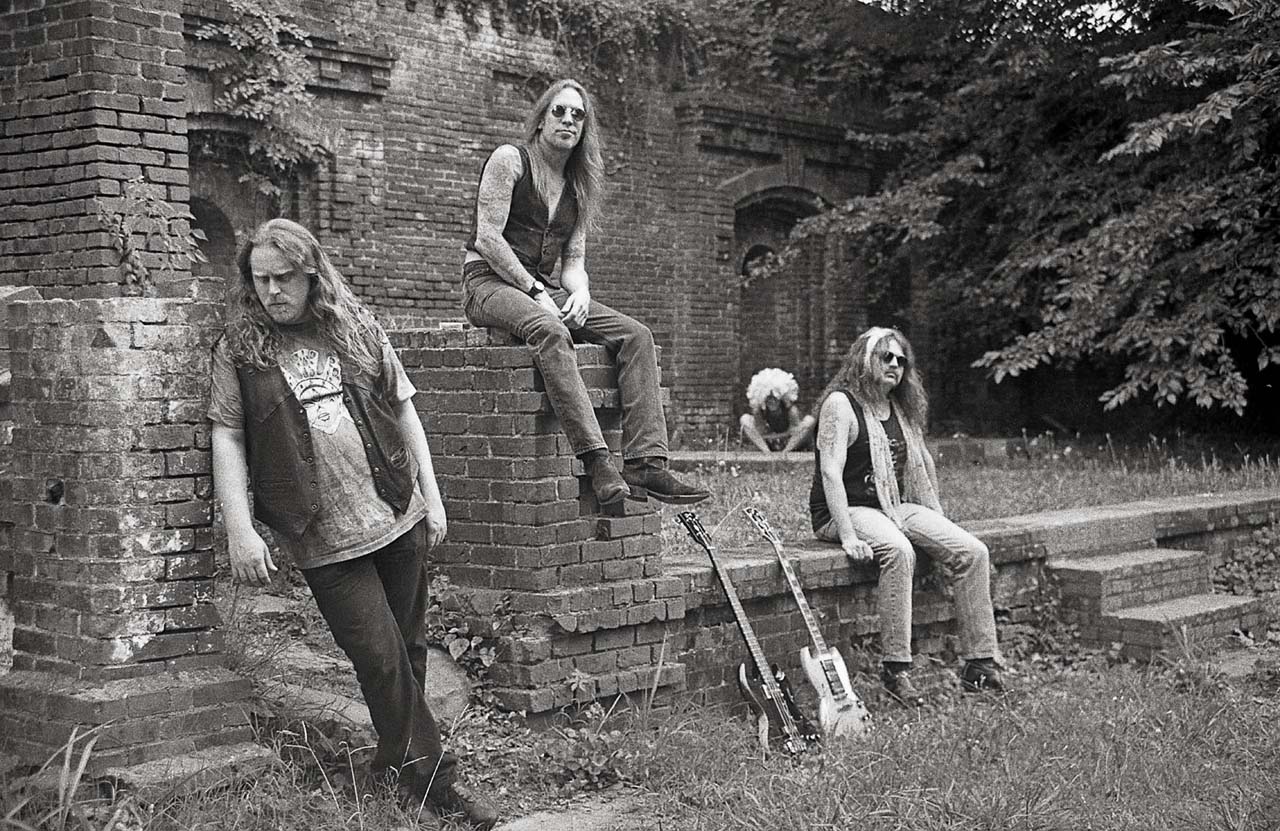
The current incarnation of Gov’t Mule – Haynes, keyboard player Danny Louis, bassist Jorgen Carlsson and original member Matt Abts on drums – remain true to the spirit in which they were founded in 1994. Back then, pre-Bonnaroo and the Phish festivals, jam bands were still a fairly disparate bunch. Gov’t Mule, in fact, was initially conceived as a distraction from Haynes’s regular gig with the Allman Brothers, whom he’d joined in 1989 after spending some time in the Dickey Betts Band, and contributing to Gregg Allman’s recent solo album Just Before The Bullets Fly. He and Allmans bassist Allen Woody used the downtime to dream up a plan. Abts, meanwhile, already knew Haynes from their time together with Dickey Betts.
“The one thing that Woody, myself and Matt shared in the beginning was a love for so many different types of music,” Haynes says. “A lot of the British rock bands incorporated that same sort of philosophy, but in America there seemed to be more of a tolerance for bands to just do whatever they felt in the moment. And an important part of all of it was the thread of improvisation that ran through everything, whether it was soul, blues or, in Woody’s case, bluegrass. He loved bluegrass, but looked at it the way you do jazz. Being open to that sort of musical communication was something that the three of us had in common and wanted to explore. And we found that there was an audience with a similar mindset.
“When we started, the jam band scene wasn’t really fully developed in the States,” he continues. “It was starting to happen, but there were definitely no rock bands similar to Gov’t Mule. We had some pretty heavy influences. I guess it’s kind of a little bold to think you can get away with being influenced by Led Zeppelin, John Coltrane, Miles Davis and James Brown, all at the same time. But so many of our heroes did that, so to us it wasn’t really anything new.”
This cross-fertilisation was, of course, entirely natural for Haynes. Music, he maintains, should be a fluid entity that exists without boundaries. That credo is further deepened by time, and one that has survived the absence of Woody, who died suddenly, aged just 44, in August 2000.
“Gov’t Mule was partially his vision,” Haynes reflects. “It was the two of us that came up with the concept, based on a lot of late-night conversations while listening to our favourite records and realising there was a void in the way that modern bands approached music. We thought it would be good to bring back a lot of those concepts, not just from a performance standpoint but sonically as well. Once I started writing songs with Gov’t Mule in mind, it kind of gave me a vehicle to write for. And with each record, that vehicle widened.
“Even when it came to the first three records with Allen, you could see the different influences starting to emerge with each one,” he adds. “For example, it was very important to him that our first record [1995’s Gov’t Mule] be almost live in the studio, that Dose contained a little more production, and that our third album [2000’s Life Before Insanity] started to embrace more acoustic instruments.
“From a Gov’t Mule perspective, we still look at it in a similar way to what was going on with FM radio in the late sixties and early seventies. You’d have Sly And The Family Stone, Crosby, Stills & Nash, soul, jazz, Latin, all under one umbrella. All these different things were considered rock music. A lot of the overall concept that remains today came from the way that Woody and I looked at music in 1994.”
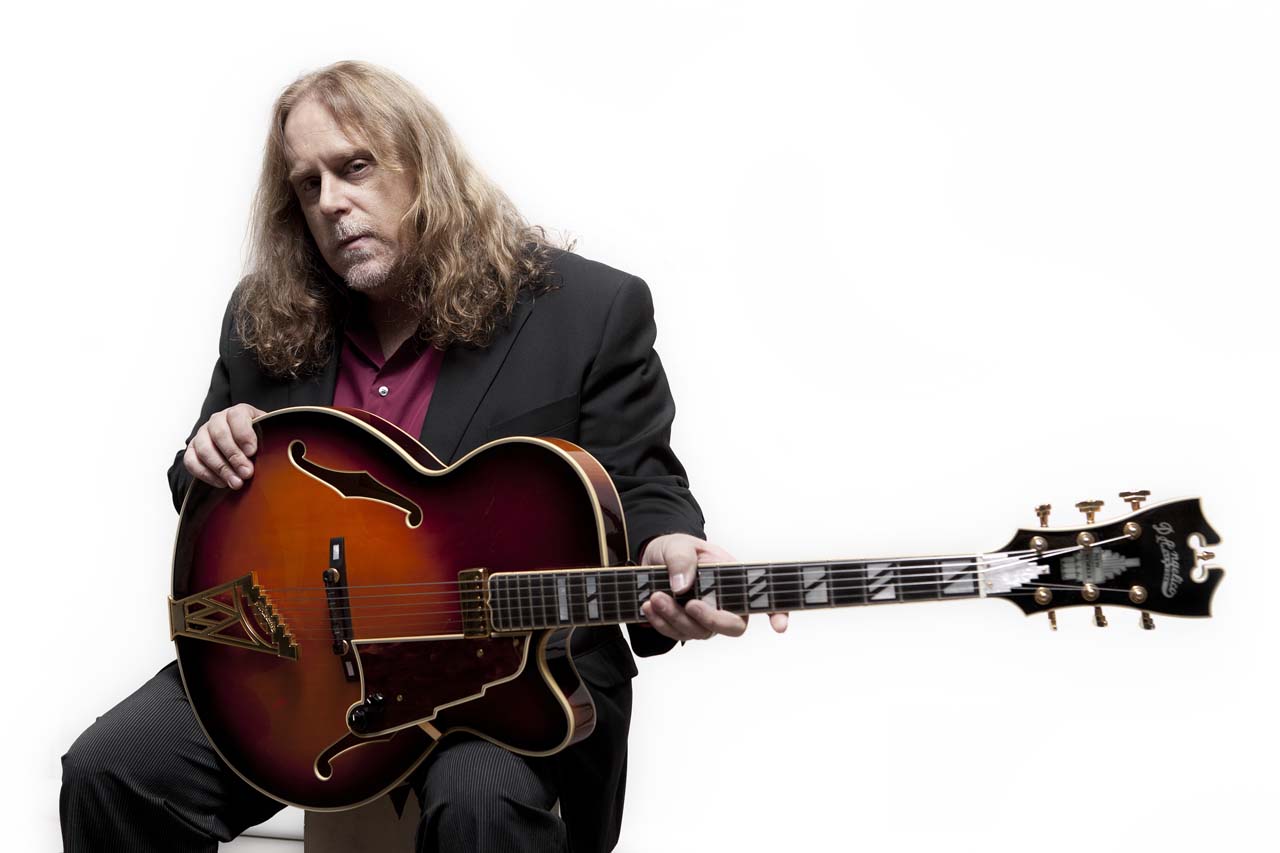
H
aynes’s first break came at the turn of the 80s when country outlaw David Allan Coe hired him as a guitarist. Haynes says that Coe – a provocative character who once claimed to have killed a man during one of his frequent spells in prison – proved “a challenge. It was a bit bizarre, his reputation preceded him. But it was through him that I met Dickey Betts and Gregg Allman, which eventually led to me being part of the Allman Brothers”.
By 1999, during a brief hiatus from the Allmans, Haynes had become part of the extended Grateful Dead family.
“I saw them five times from eighty-nine to when Garcia died in ninety-five, though I did see them once as a nineteen-year-old in seventy-nine,” he explains. “So I got a glimpse of what that scene was all about, which was pretty crazy. Then when [Dead bassist] Phil Lesh called me in the late nineties, I flew from New York to California to hang out with him, rehearse and do a few shows. From that point onwards I was part of that scene.”
At more than one juncture in the 2000s, Haynes was simultaneously a member of The Dead, the Allmans and Gov’t Mule. In the past 29 years he has also presided over the annual Warren Haynes Christmas Jam, a charity event in his home town of Asheville, North Carolina. What began as a low-key gig in a small club has now grown into a mammoth showcase for both new and established artists.
“Christmas Jam started out as an opportunity for a lot of local musicians to get together and play at the one time of year when everybody seemed to be home,” he explains. “But it changed after a few years into something more regional, with people like Derek Trucks, Dave Schools from Widespread Panic, Toy Caldwell from the Marshall Tucker Band and Bobby Keyes from the Rolling Stones showing up. It just started getting bigger and bigger. And I guess for twenty years now it’s been in an arena. It’s an eight-hour show, and it’s important to us to have a lot of different types of music represented.”
Right now, Haynes is encouraged by what he sees as a healthy jam scene in the US. “There are a lot of cool young bands starting to emerge, and that’s really the key,” he asserts. “For example, the Marcus King Band is getting a lot of positive feedback, and rightly so. I’m starting to see a higher bar for musicianship in the past four or five years, which I think is due to a lot of young musicians experiencing the influences that first made up that scene. There are fourteen- and fifteen-year-old kids coming to Gov’t Mule shows who are now discovering Jimi Hendrix, Pink Floyd and the Allman Brothers. And it’s having the same effect on them that it had on us.
“I don’t think there’s any way of predicting where your journey is going to wind up. And I’m very grateful that there’s a scene that embraces what we love to do, because it’s something that we’re all still so passionate about.”
Gov’t Mule’s Revolution Come… Revolution Go is out now via Spinefarm
Freelance writer for Classic Rock since 2008, and sister title Prog since its inception in 2009. Regular contributor to Uncut magazine for over 20 years. Other clients include Word magazine, Record Collector, The Guardian, Sunday Times, The Telegraph and When Saturday Comes. Alongside Marc Riley, co-presenter of long-running A-Z Of David Bowie podcast. Also appears twice a week on Riley’s BBC6 radio show, rifling through old copies of the NME and Melody Maker in the Parallel Universe slot. Designed Aston Villa’s kit during a previous life as a sportswear designer. Geezer Butler told him he loved the all-black away strip.

